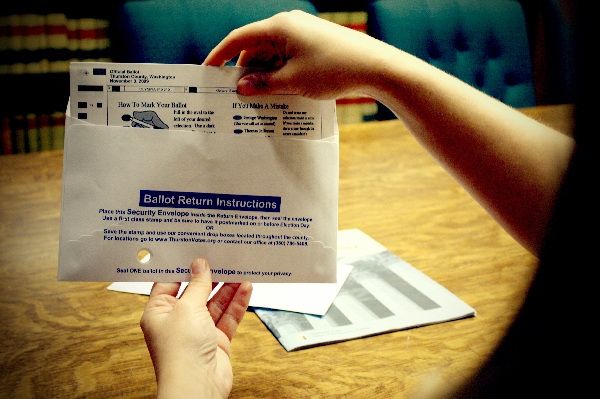9th Circuit throws out Wash. ban on felon voting
The 9th Circuit Court of Appeals has thrown out Washington’s longstanding ban on voting by felons.
The surprise 2-1 ruling comes in a case brought in U.S. District Court in Eastern Washington almost 14 years ago by Muhammad Shabazz Farrakhan and three other black inmates, and by a Native American and a Latino inmate. The inmates said minorities are disproportionately prosecuted and sentenced to prison, and that their automatic disenfranchisement violates the federal Voting Rights Act.
 The Appeals bench concurred with the inmates that the state’s criminal justice system is “infected” with racial discrimination and that the challengers don’t have to prove that that it is intentional or racially motivated discrimination. The court held that the VRA, adopted in 1965 for the purpose of eliminating the country of racial discrimination in voting, thus does not permit disenfranchising voters who are behind bars. The judges also said it is irrelevant that the state Legislature last year approved a new law that takes away a felon’s voting rights only while in the direct custody of the Department of Corrections. Previously, voting rights were restored only after restitution and other costs were repaid, a matter of years for some ex-cons.
The Appeals bench concurred with the inmates that the state’s criminal justice system is “infected” with racial discrimination and that the challengers don’t have to prove that that it is intentional or racially motivated discrimination. The court held that the VRA, adopted in 1965 for the purpose of eliminating the country of racial discrimination in voting, thus does not permit disenfranchising voters who are behind bars. The judges also said it is irrelevant that the state Legislature last year approved a new law that takes away a felon’s voting rights only while in the direct custody of the Department of Corrections. Previously, voting rights were restored only after restitution and other costs were repaid, a matter of years for some ex-cons.
Three other circuits, the First, Second and Eleventh, have reached the opposite conclusion about felon voting. State Elections Director Nick Handy said the conflicting opinions makes it very likely that the U.S. Supreme Court will be asked to take the Farrakhan case on appeal. The state Attorney General also could ask the full 9th Circuit to hear the case, hoping for a different outcome. The case has bounced from the district to the appeals court several times during its unusually long history.Secretary of State Sam Reed, a co-defendant in the case, said he was surprised by the ruling, and continues to support the existing law, and hopes that further appeal will uphold the policy. The state has a strong and clear interest in fighting racial discrimination and fair voting laws, but that the loss of voting rights is an appropriate sanction for society to demand of felons while they are incarcerated or on community supervision. Most states have this policy, he notes.